Indeed, when Kraków decks its halls for the holidays it seems to rather effortlessly embody all the magic that Hollywood has taught us Christmas is supposed to have. It’s not all rum-pa-pum-pum and reindeer games, however. Poland has a full calendar of holiday customs and traditions, many of them Catholic in character, that stretch from early December all the way into January, and which will surely make your experience here a unique, and even at times completely foreign one. We help you get into the local spirit by detailing them below, so you’ll be well-read and ready when you find yourself smitten in mittens beneath the mistletoe. But first:
How do you say 'Merry Christmas' in Polish?
Glad you asked! Say it with us now:Wesołych Świąt i Szczęśliwego Nowego Roku!
Okay, let's break that down phonetically:
Veh-so-wick Shvee-ont... (Merry Christmas...)
...ee Shchen-shlee-vay-go No-vay-go Ro-koo! (...and happy New Year!)
Keep practising, you'll get it.
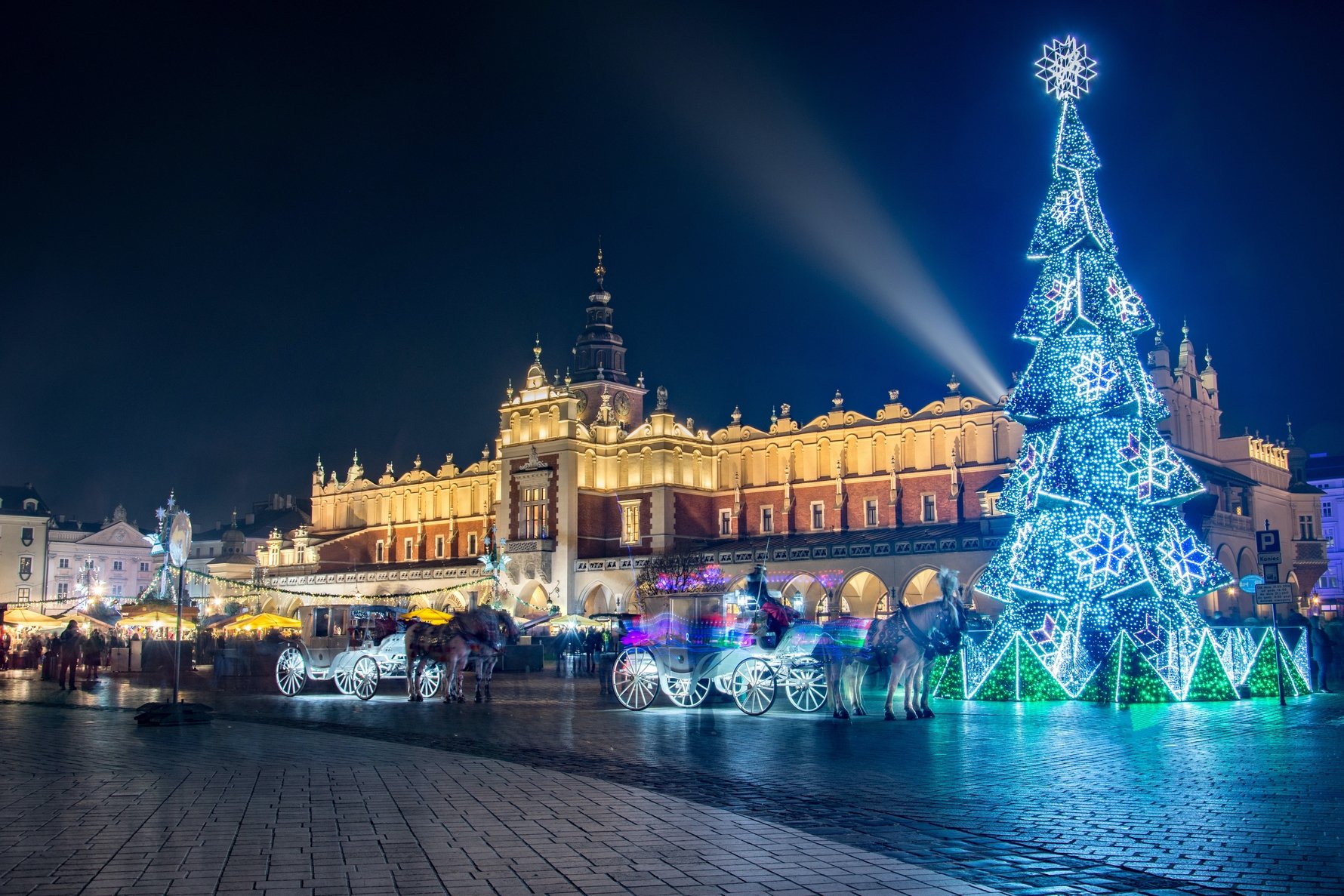
What happens during Christmas in Kraków?
Christmas in Kraków consists of some rather quirky traditions that leave the rest of Europe and the world scratching their heads. The holiday season in Kraków officially kicks-off on the last Friday of November, when the annual Christmas Market opens in the main square. While this is arguably a thinly-disguised exercise of consumerism at the same level seen in many western countries, the true 'observance' of Christmas begins with Advent (written as Adwent in Polish) from December 1st till the 24th. In this time, Poles embark upon the period leading up to Christ's birth by spiritually preparing for Christ’s arrival. Put simply, Poles are expected to refrain from 'indulgences' and attend Holy Mass as much as possible!
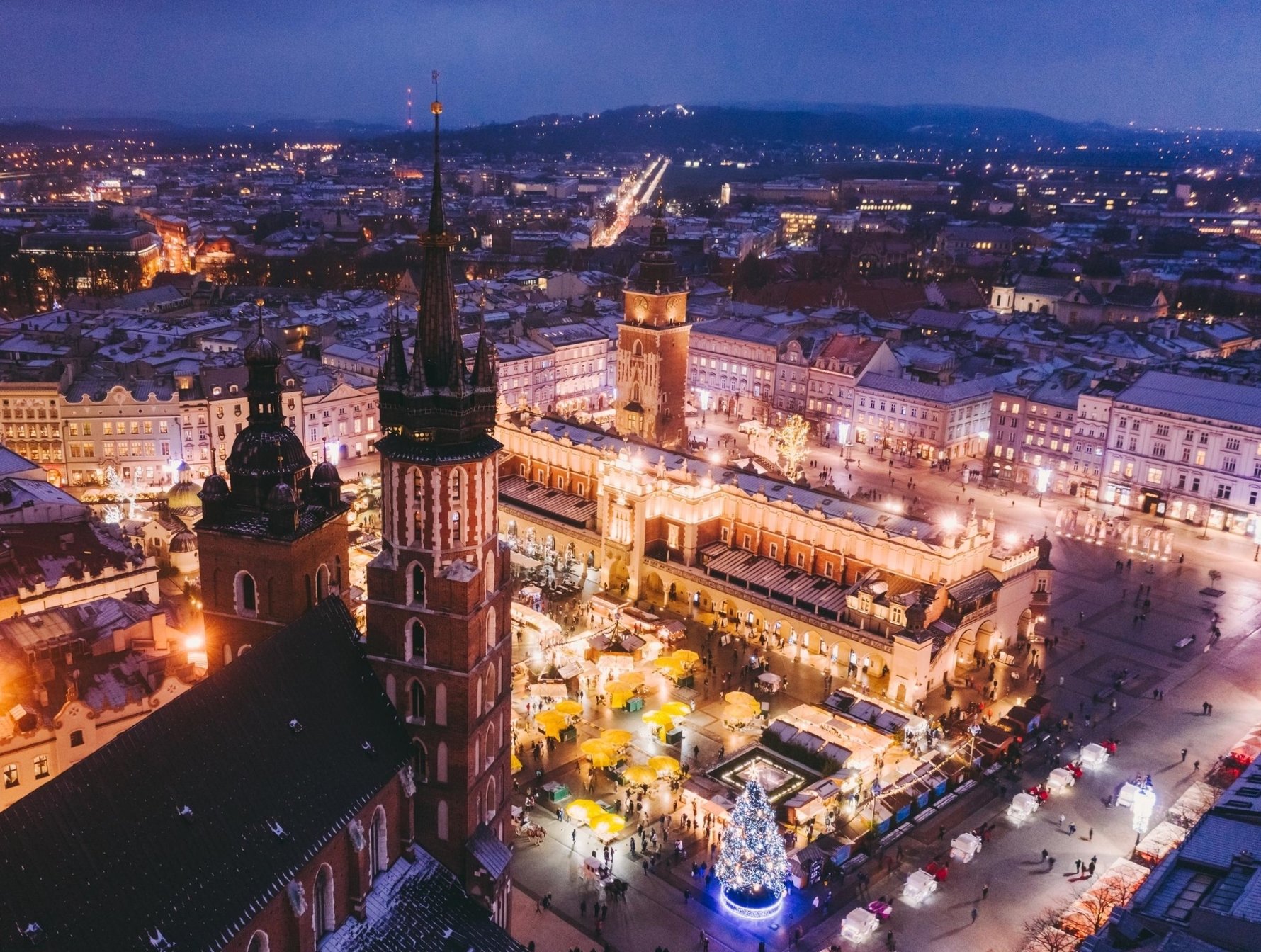
The first Thursday in December also marks the Annual Kraków Christmas Crib Competition. While it may sound like an MTV show where Polish celebrities show off their luxury apartments, this is actually one of Kraków’s most unique traditions. In Poland, a ‘Christmas crib’ or szopka is, essentially, a nativity scene. However, szopki krakowskie (as the idiosyncratic local variety are called) is a sort of strange cross between a nativity scene, gingerbread house and dollhouse, and is the bizarre result of a slowly evolving folk tradition that dates back to the Middle Ages. People from all over the city and the surrounding province of Małopolska bring their unique Christmas creations to the market square at 10:00 to show them off, before a procession takes them away to be judged around 12:00. If you're in town, make sure you check it out! However, if you've missed it, you still get a chance to see the year's szopki during the annual Christmas Crib Exhibit, typically running in Krzysztofory Palace from early December until the end of February.
For more on one of Kraków's most unique holiday traditions, read our full article on Kraków Christmas Cribs (Szopki Krakowskie).
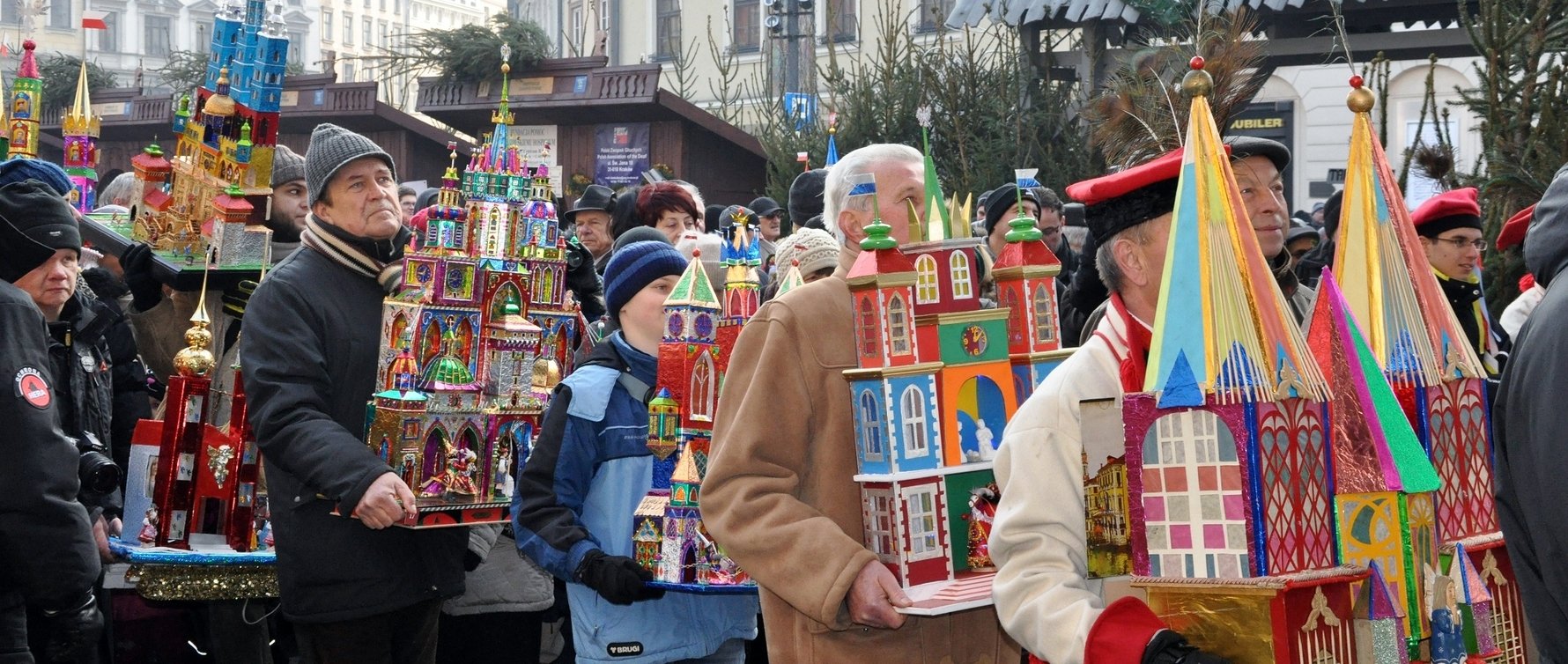
With Christmas Day reserved for family and busy with the celebration of Christ, Saint Nicholas (PL: Święty Mikołaj) shows up three weeks early on December 6th - ‘Dzień Świętego Mikołaja,’ or Saint Nicholas Day. In the Polish tradition, you won't find 'Santa Claus' and his elves hanging out at the North Pole with a Coke sponsorship, but an actual dignified saint in a bishop's hat and a regal purple and gold robe. Eager children write letters to the Saint requesting gifts and put the letter outside on the windowsill so the old codger can drop by and pick up their request during the night. On the 6th, Polish children awake to discover Mikołaj’s benevolence with a gift under their pillow or next to the bed. Of course, there are plenty of opportunities to see Old Saint Mikołaj in the flesh on this day, particularly at festive locations like Christmas markets, preschools and shopping malls.
December 24th is, of course, Christmas Eve – or Wigilia as it’s called in Poland - is one of the biggest feast days of the year and an important time to be with family. Expect to eat lots of traditional Polish food in the evening, so consider skipping lunch (and maybe breakfast). In the past it has also consisted of keeping the feature dish, the carp, alive and swimming in the bathtub for several days leading up to the 24th! At midnight, most families head out in the cold to attend pasterka, or midnight mass. It is on Wigilia that Kraków's churches also debut their traditional nativity scenes, centred around baby Jesus in the manger. As you wander the Old Town between December 24th and February 2nd, don't miss the chance to check out some of these elaborate displays! St. Francis’ Basilica even hosts an annual ‘live nativity scene’ in the field behind the church during late Christmas Eve and evening on the following day, which is a great event for families!
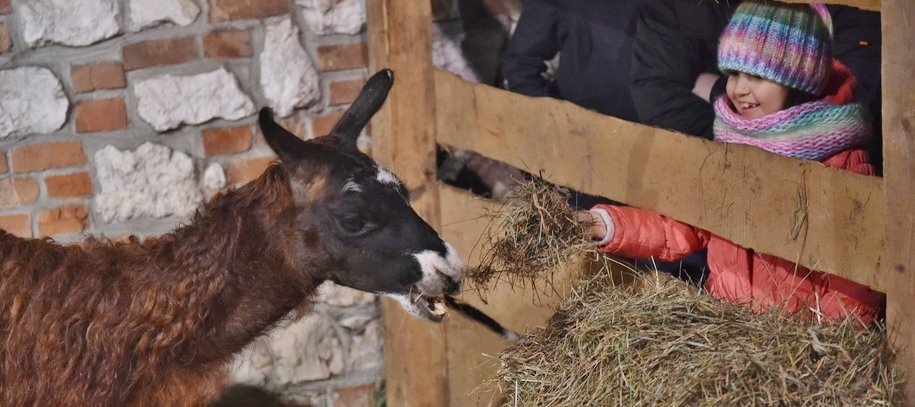
After another morning mass, Christmas Day on December 25th is reserved for visiting family and friends, a continuation of feasting (this time including meat and alcohol), and watching Kevin Sam W Domu - literally 'Kevin Alone In The House,' better known by its English title, 'Home Alone!' While Christmas Day holds less importance and symbolism for Poles than Christmas Eve, it is still a public holiday and a time for family. December 31st is known locally as 'Sylwester,' and on this last night of the year every bar, club, restaurant and hotel in town will be hosting an all-night New Year’s Eve bash. The decorations stay up and the spirit of the holiday season is kept strong across the country until January 6th – Three Kings Day (PL: Dzień Trzech Króli). Mass is compulsory for devout Catholics, after which it's time to join a Three Kings Day procession - a merry parade of costumed carollers passing out candy, which honours the three wise men who visited Jesus at his birth. The Polish holiday season doesn’t officially expire until February 2nd when Saint Nick sees his shadow, the lights come down and it’s generally agreed that every family should toss their Christmas tree!
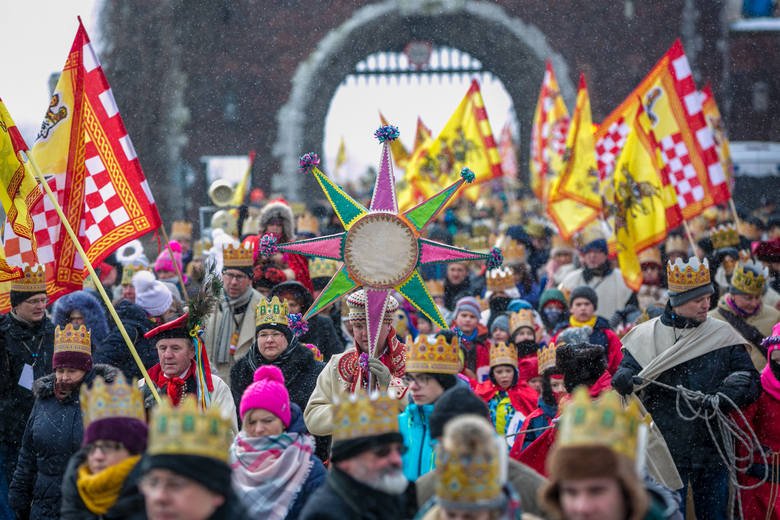
When & Where is the Christmas Market in Kraków?
Kraków Christmas Market is located in the city's main market square - Rynek Główny. Undoubtedly, the highlight of the local holiday season, the tradition of this annual Christmas fair began before WWII, was paused during the PRL era and then rekindled after the fall of communism (you know, when people were allowed to buy and possess things again). Occupying almost half of the enormous Rynek Główny, the fair features stall upon wooden stall selling all kinds of folk art and Christmas ornaments, candies and sweets, regional products, knitwear, toys, souvenirs, jewellery, pottery, partridges, pear trees and more. Food vendors also dish up hot regional food, which families share over picnic tables, while keeping warm with hot mulled wine (called ‘grzaniec’) dispensed from enormous wooden barrels on the square. A cultural stage presents a nearly constant flow of carollers, folk acts, theatrical performances and random acts of holiday spirit. Integral to the holiday experience in Kraków, and simply impossible to miss, the festive atmosphere begins on Friday November 29th, 2024 and will last until Wednesday January 1, 2025; the stalls are generally open from 10:00-22:00. More info at www.kiermasze.com.pl.
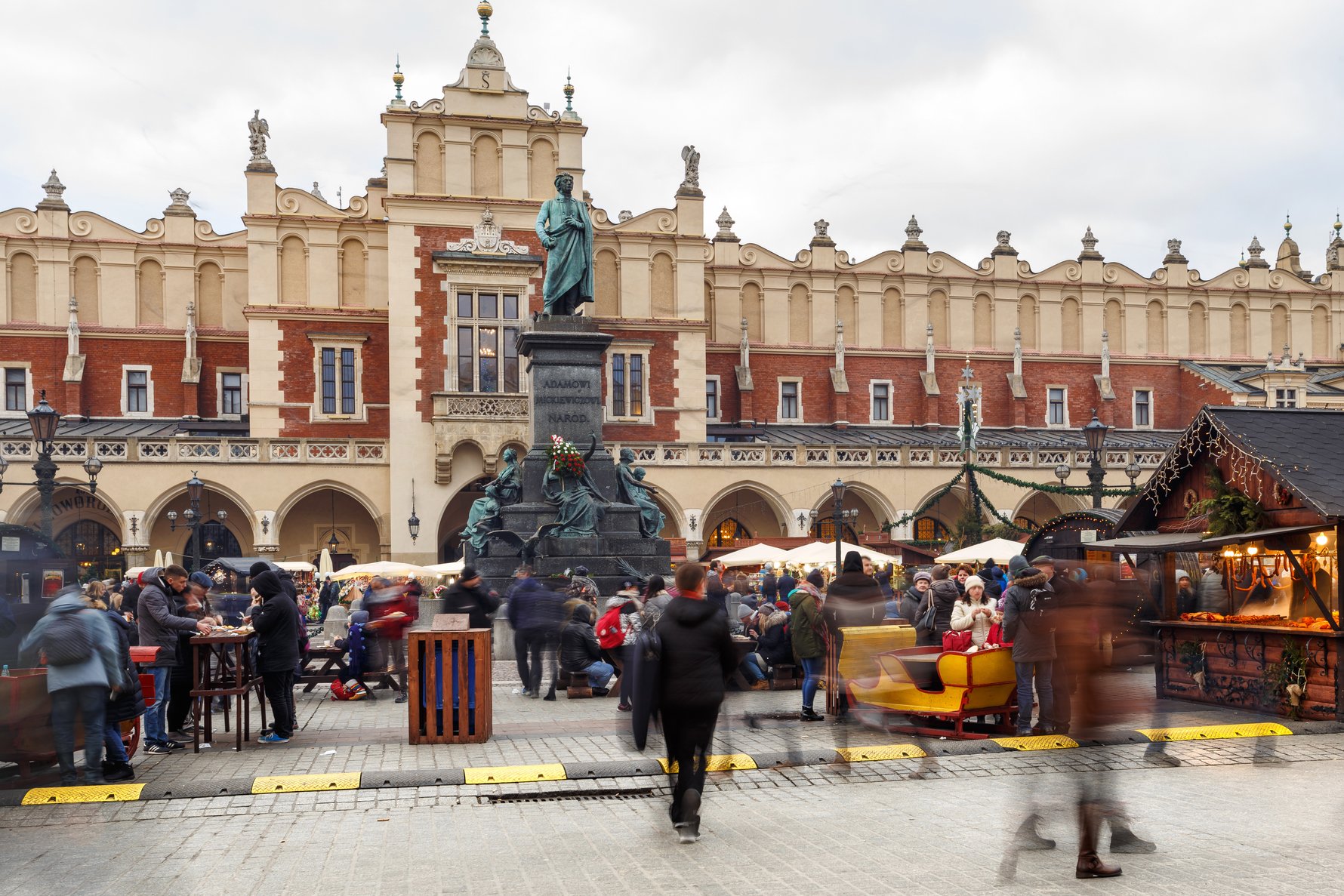
When do the Christmas lights and decorations go up in Kraków?
Kraków's Christmas lights and decorations are generally installed beginning in the third week of November so that everything is festive as a yule log fire in time for the opening of the Christmas Market on November 29th, 2024. You can expect to see festive decorations around the market square and many streets of the Old Town, including Floriańska, Sienna, Grodzka, Bracka, Szewska and Sławkowska. The romantic Bernatka footbridge, crossing the Wisła river into Podgórze, will also be lit up in holiday style.What is Traditional Polish Christmas Food?
Traditional Polish Christmas food can be effectively put into categories - 'Market food' and ‘Wigilia.’Market food is essentially traditional Polish food that, as the name would suggest, is sold at the Christmas Markets. It is also served hot, as you are consuming it outside in the freezing cold, after all! Aside from all the quintessential kiełbaski (ENG: sausages) and bigos (ENG: stewed-spiced cabbage), you will also find oscypki - smoked cheese that originates from the nearby Tatra Mountain region. Kaszanka (ENG: Black Pudding or Blood Sausage) split open and cooked up as a mincey stew is served up on a paper plate with a slice of bread - you either love it or hate it! Unique to Kraków is the Obwarzanek - a baguette-turned-bagel that has been sold in the market square for so long, it now has it's own PGI (Protected Geographic Indication). As it is elsewhere in Europe, hot wine (PL: grzane wino) is popular for sipping in the chilly outdoors and letting the Christmas spirit (or vapours) get to your head! Believe it or not, Poles even drink hot beer (PL: grzane piwo) and it's not uncommon for folks complaining about a sore-throat to order hot beer with cloves and other spices at the local pub.
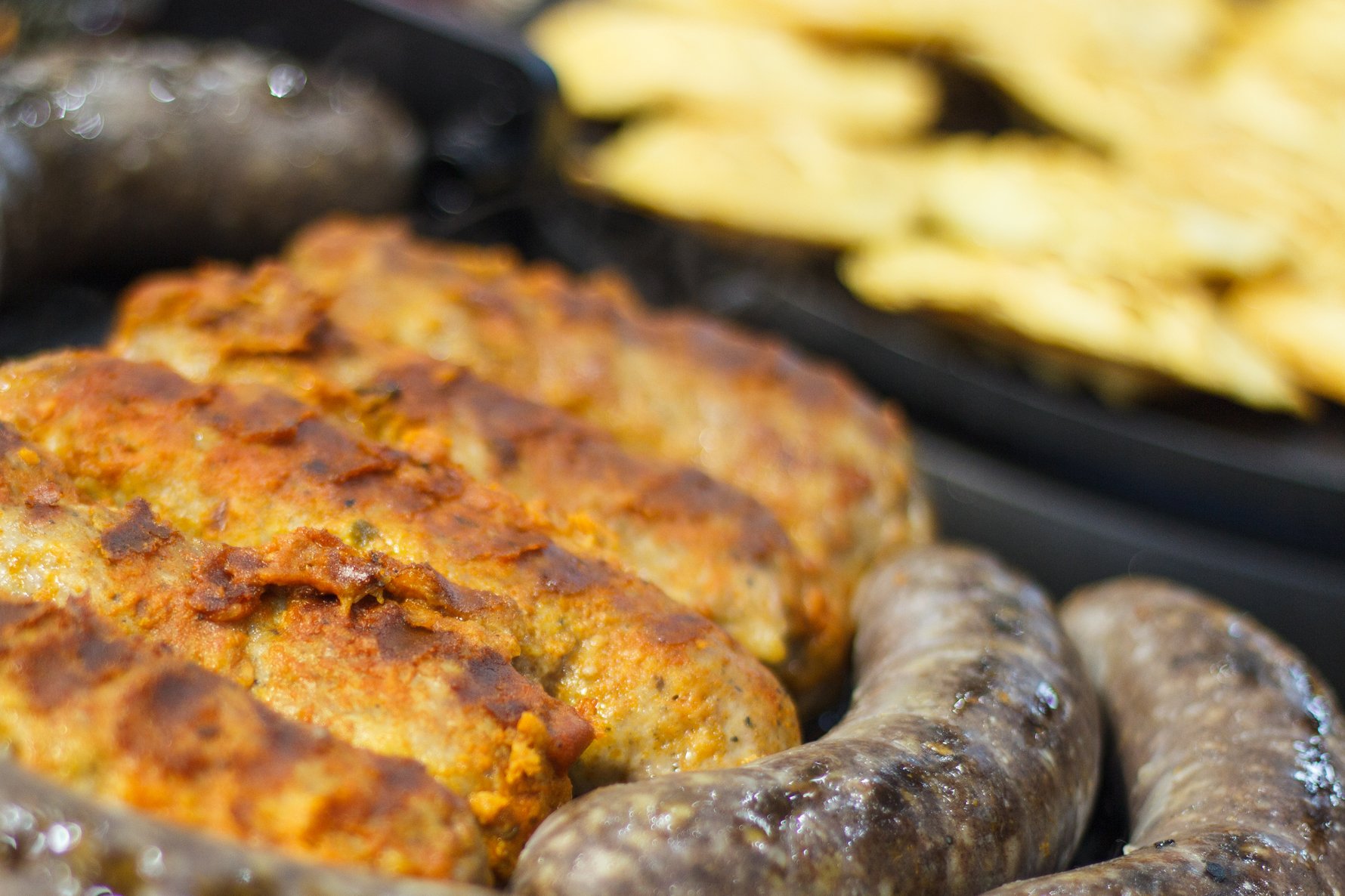
Wigilia (ENG: Christmas Eve) is one of the biggest feast days of the year and an important time to be with family. The feast of Wigilia consists of a gut-busting twelve courses – one for each of Jesus’ disciples – and because it’s meant to be meatless, the main dish is traditionally carp, which apparently isn’t recognised as meat by Catholics (fish was Jesus’ favourite vegetable). In the past, it wasn't uncommon for the carp to be bought early and kept in the family bathtub for several days until it was time for the man of the house to clobber it, carve it and cook it. The dish was then served cold on Christmas Eve. ‘Smacznego!’ (Bon Appetit).
Other dishes include mushroom soup and barszcz, poppy-seed pastries (makowiec), herring in oil (śledz), pickles and an assortment of other Polish salads and sides. The meal concludes with a round of belt-unbuckling, singing carols and the all-essential unwrapping of presents beneath the Christmas tree. Following this, most families head out in the cold to attend pasterka, or midnight mass. Read our article on Wigilia - Poland's Christmas Eve Feast.
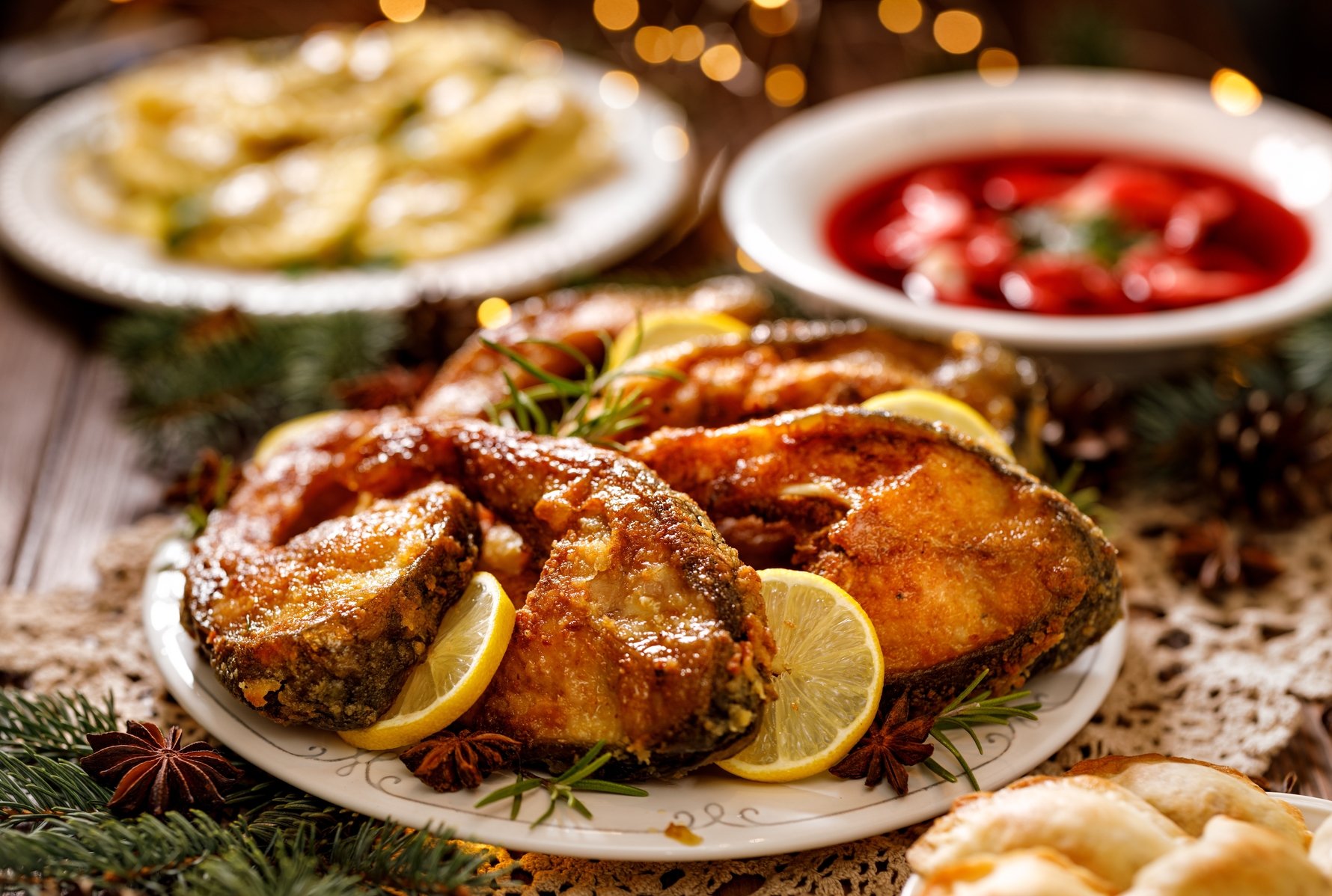
What are the Best Things to See & Do in Kraków?
In addition to all the wonderful Polish food and the streets and bridges lit-up with Christmas decorations, it is an opportunity to visit a city of heritage, with Kraków's major attractions such as the Market Square, Wawel Castle and the neighbourhood of Kazimierz having been officially entered on the UNESCO World Heritage List.
Kraków has always been, in many respects, a charmed city. With a history that dates back to the 4th century settlement of Wawel Hill, Kraków has fortuitously avoided destruction since the pesky Mongols stopped bullying the area in the 13th century, growing into one of the most prominent cities in Central Europe. The most important city in Poland not to come out of World War II looking like a trampled Lego set, even the Soviets failed to leave their mark on the enchanted city centre during 45 years of supervision, forced to erect their grey communist Utopia in the outlying suburb of Nowa Huta. As a result, Kraków is today one of the most beautiful showpieces of Central Europe – a claim validated by its historic centre’s inclusion on the first-ever UNESCO World Heritage List in 1978, along with the nearby Wieliczka Salt Mine and only ten other places in the world. A city of majestic architectural monuments, cobbled thoroughfares, cultural treasures, timeless courtyards and priceless artworks, Kraków’s historic centre is the pride of Poland.
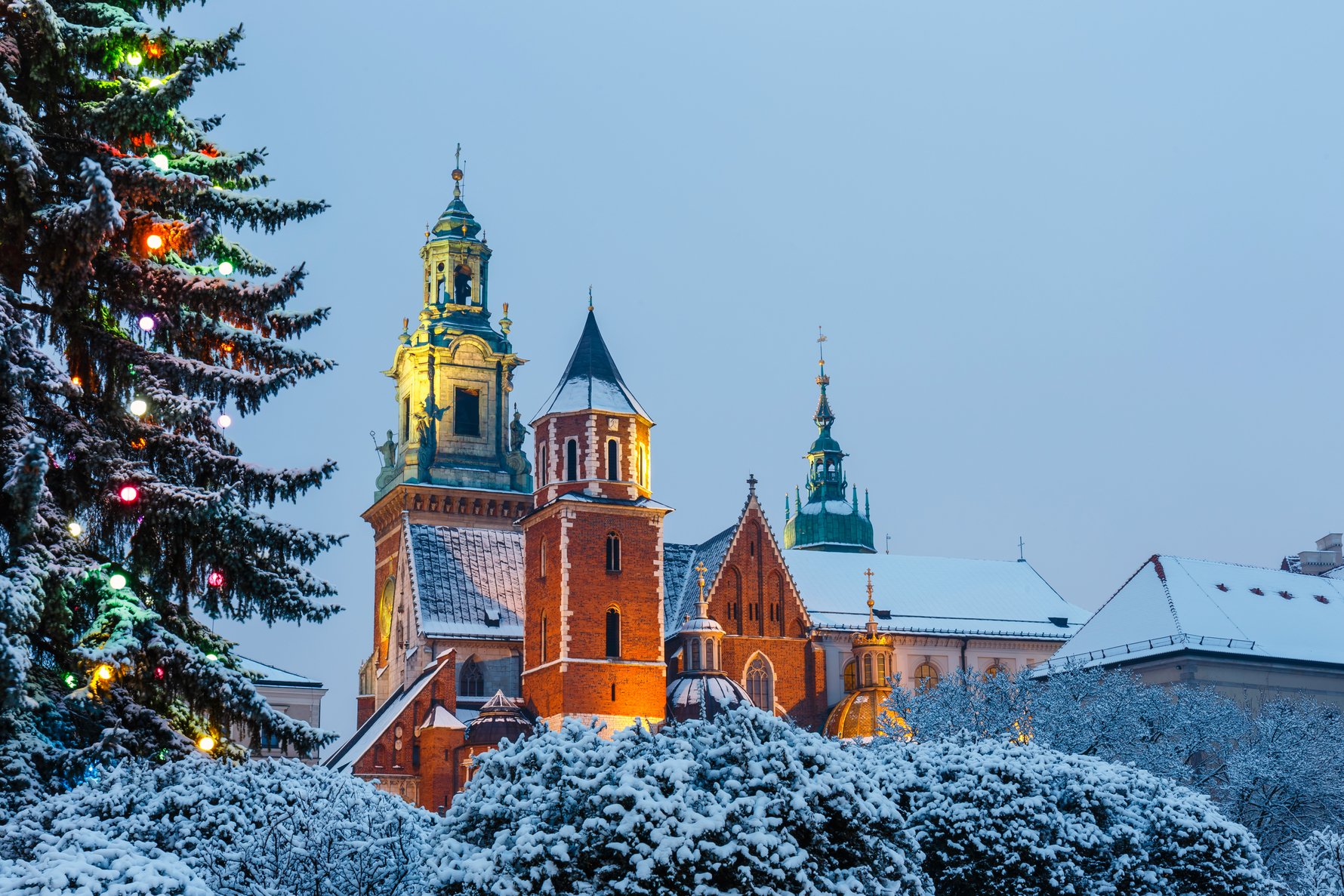
Kraków’s centre can be divided into two main sections – the Old Town and Kazimierz (the former Jewish Quarter), with Wawel (the former Royal Castle) towering between them. These three areas are requisite for anyone visiting the city and have been given their own separate treatment with accompanying cultural listings within this guide. Though one could spend their life wandering in and out of the cobbled streets, courtyards, cafes, clubs and museums of the Old Town and Kazimierz (we’ve attempted to make a life out of it), don’t hesitate to take a trip across the river into Podgórze - arguably the city’s most evocative and mysterious district; the Jewish heritage trail also naturally leads you from Kazimierz into Podgórze, where the worst horror of Kraków’s Nazi occupation played out and Schindler made a name for himself.
Just west of the Old Town lies Salwator - Kraków's greenest district, and home to one of its most unique outdoor attractions, Kościuszko Mound. Within these pages you’ll also find a section devoted to Nowa Huta, one of only two planned socialist realist cities ever built. Designed to be the antithesis of everything Kraków’s Old Town represents, both culturally and aesthetically, the commie comforts of Nowa Huta are only a tram ride away. Those staying in the area for a week or more should strongly consider day trips to Wieliczka, Auschwitz-Birkenau and Tarnów. However long your stay, our meticulously updated information will help you make the most of it. Enjoy exploring Kraków and Małopolska.


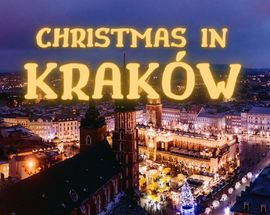
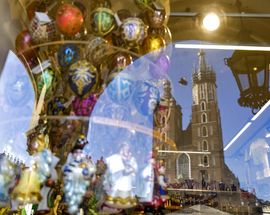
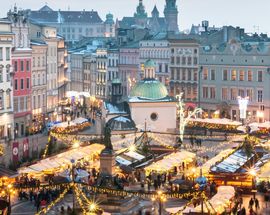
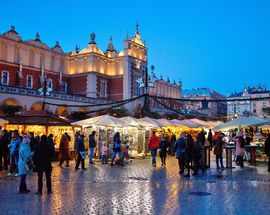
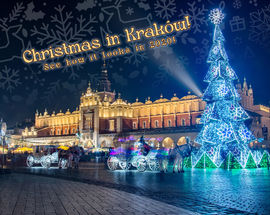
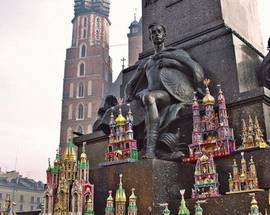
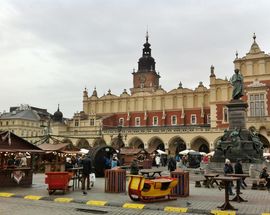
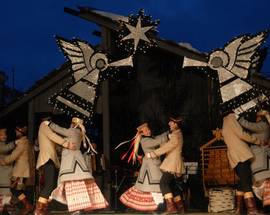
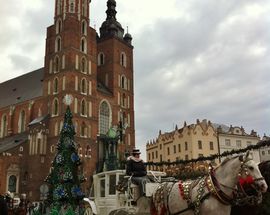
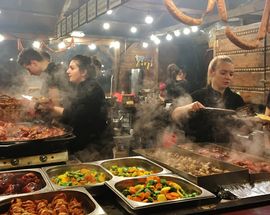
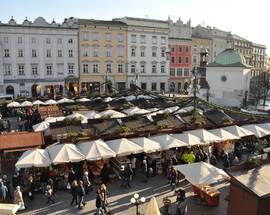
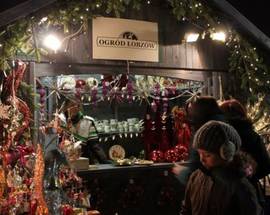
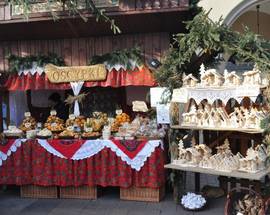
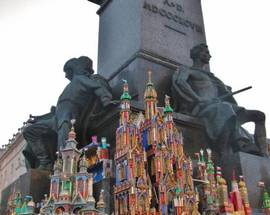
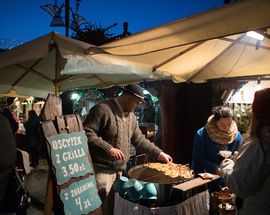
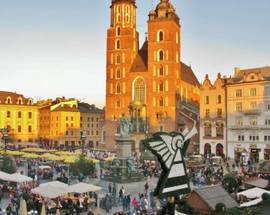
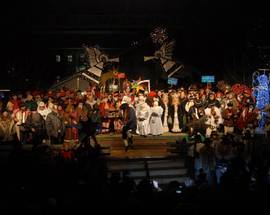
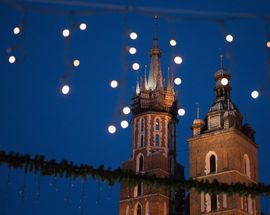
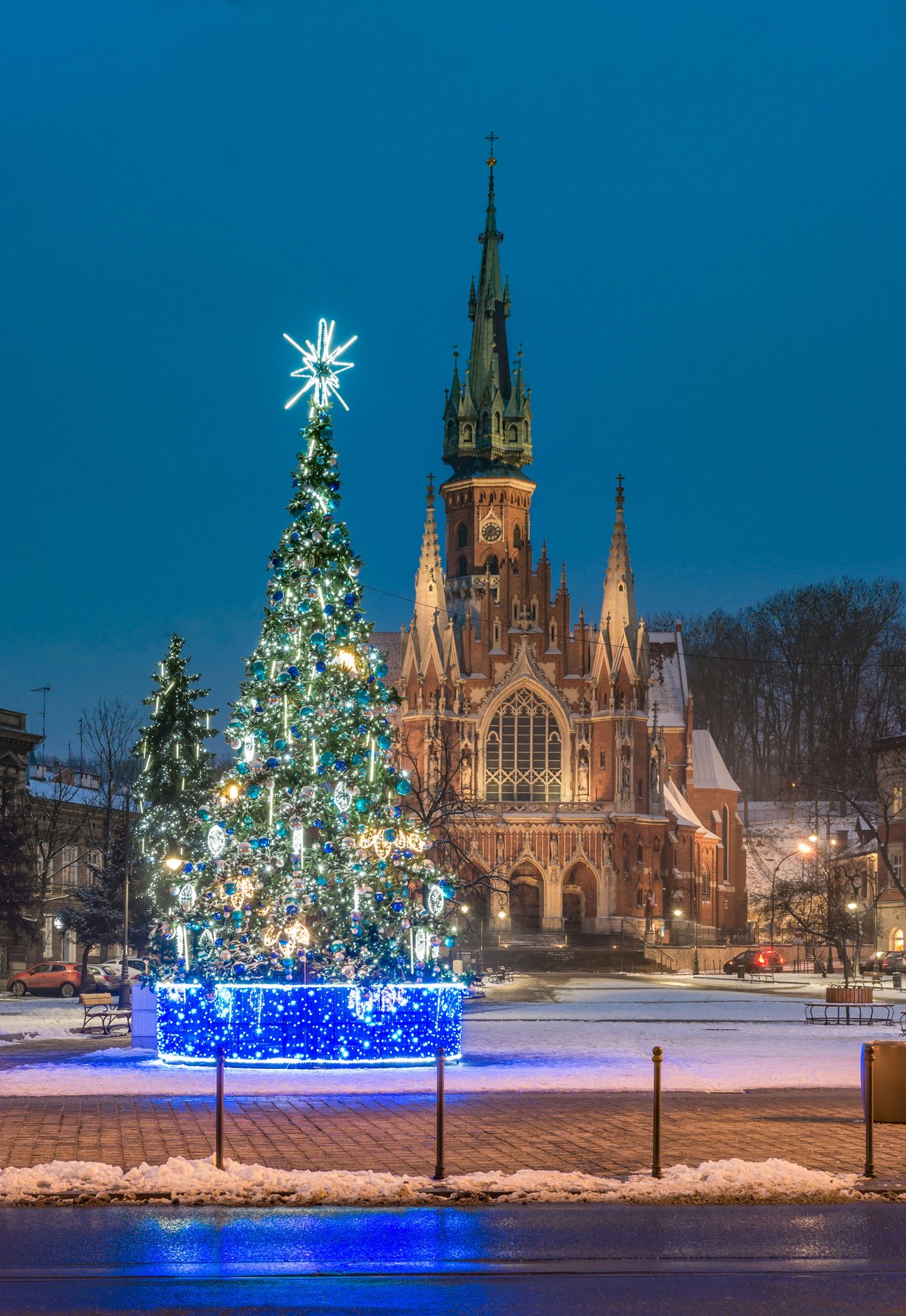
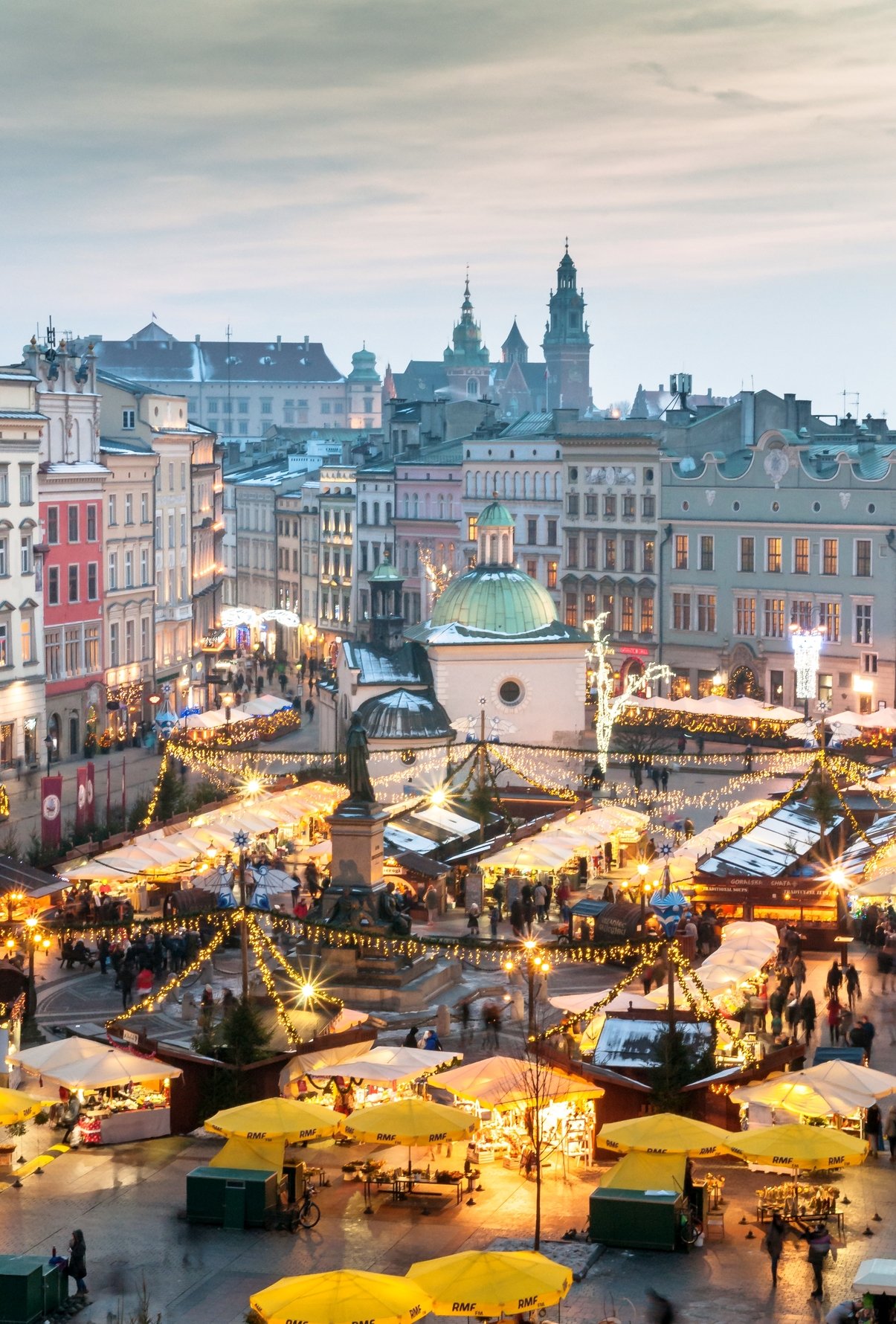
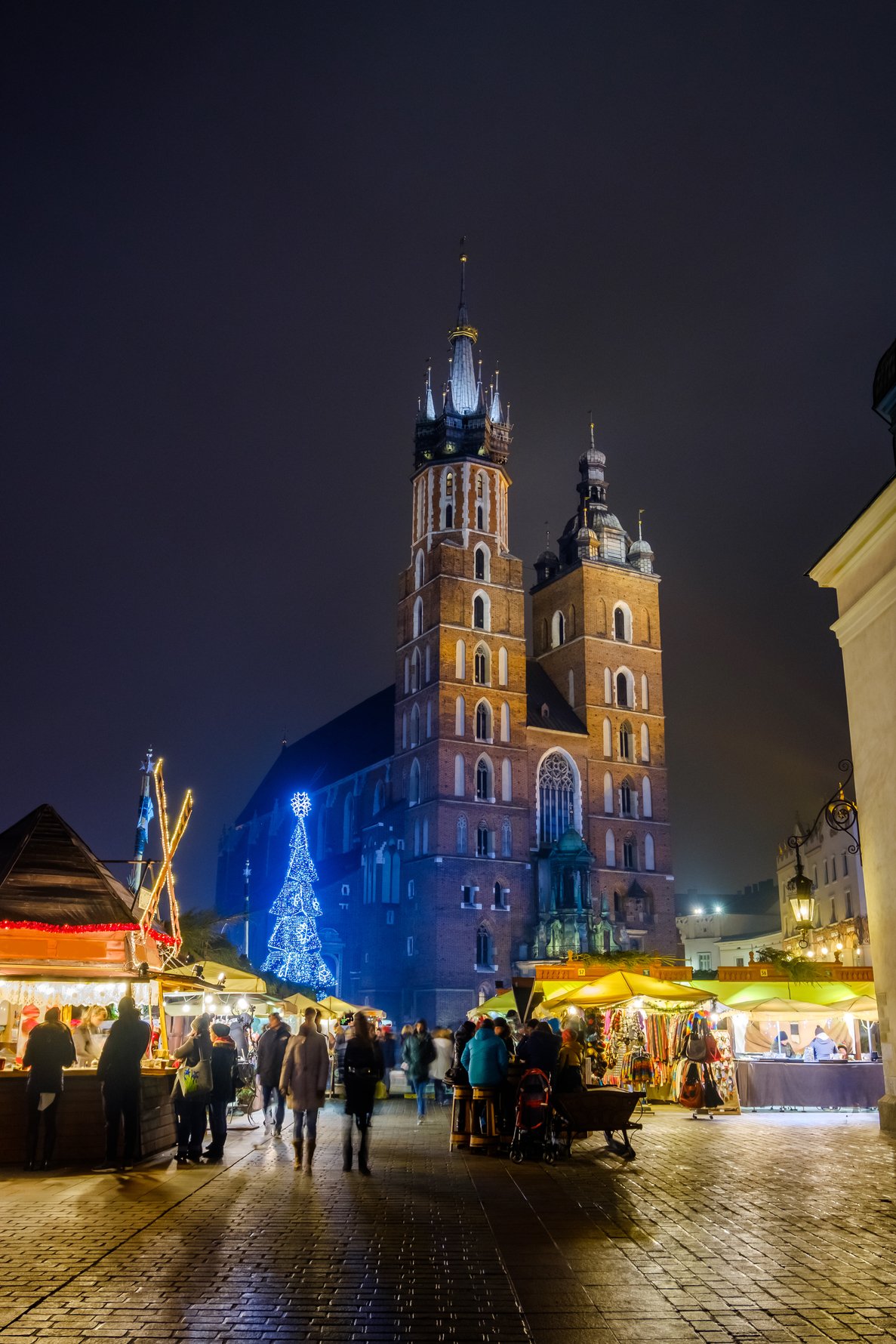



Comments